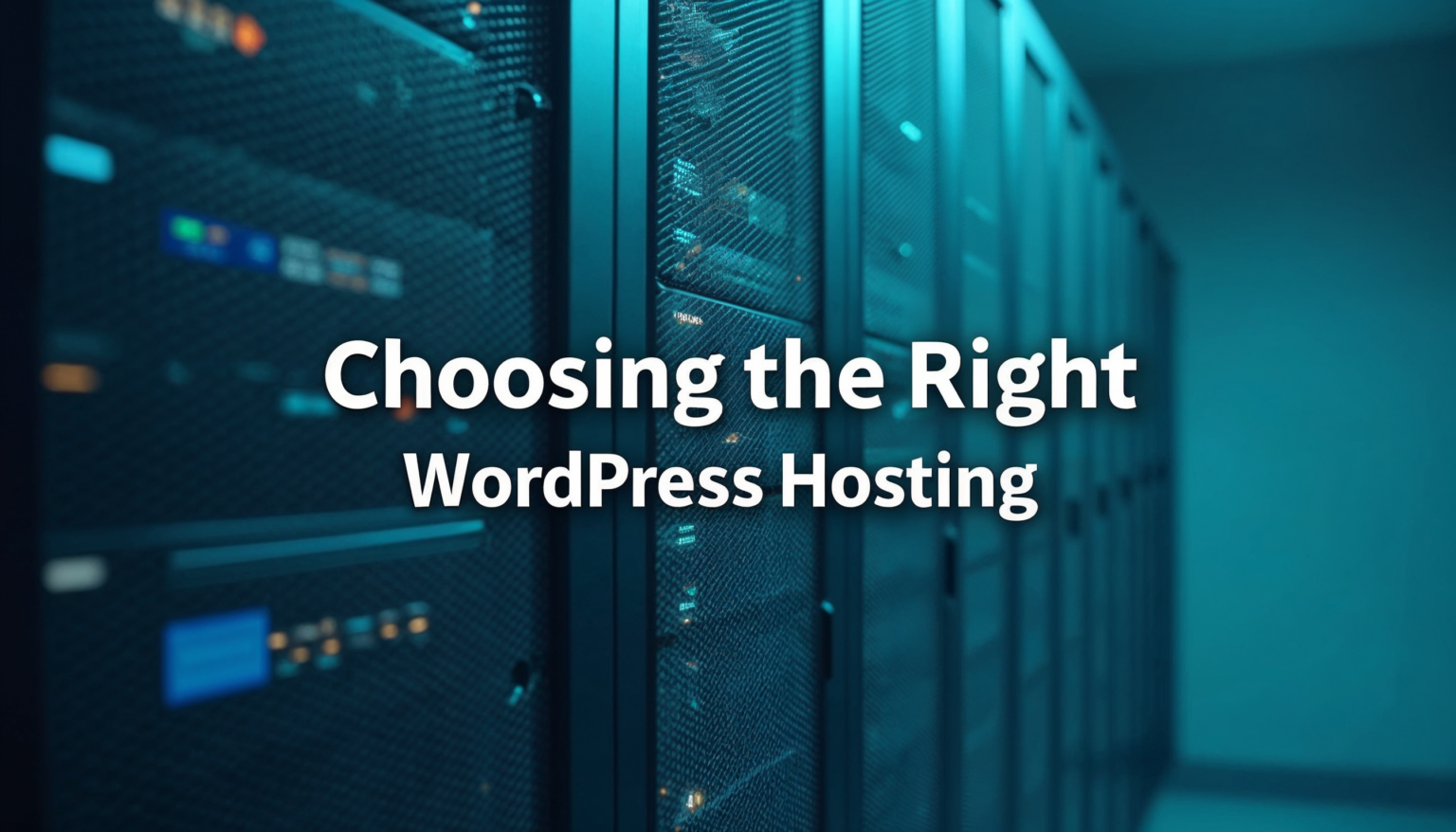
So, you’re diving into the world of WordPress and trying to figure out the best hosting option? It can feel a bit like standing in front of an overwhelming menu, not knowing what to pick. But don’t stress! We’re going to break it all down in a way that makes sense.
The Hosting Lineup
Before we jump into all the techy stuff, let’s talk about the big players in the hosting world:
Each one has its pros and cons, but picking the right one really depends on where you’re at with your site and what your goals are. Let’s dig a little deeper into each option.
Shared Hosting: The Simple, Wallet-Friendly Start
For those just starting out, shared hosting is like ordering the most affordable thing on the menu. It’s great because it’s easy on the budget—often less than $5 per month! But, as with anything that’s a steal, there’s a bit of a catch. You’re sharing the server’s resources with other websites, which means your site might slow down during traffic surges. It’s a bit like renting a room in a busy house—you’ve got your space, but when everyone wants to use the kitchen at the same time, it can get crowded. Not to mention, some of the cheaper shared hosting options like to oversell their resources. Meaning that, they’ll overcommit resources and have websites fighting for resources.
Benefits of Shared Hosting:
Drawbacks:
Managed WordPress Hosting: The “Let Me Handle That for You” Option
Now, if you’d rather focus on building your site and not worry about updates, backups, or security, managed WordPress hosting is like hiring someone to run errands for you. It’s more expensive than shared hosting, but it’s worth it if you’re not interested in dealing with the technical stuff.
Think of it as having a team of experts managing your site’s upkeep while you sit back and focus on content, design, and maybe your next big idea.
Why Managed Hosting Rocks:
Things to Consider:
VPS Hosting: More Control Without Breaking the Bank
Feeling like you need more power but don’t want to shell out for a full-on dedicated server? That’s where VPS hosting comes in. With VPS, you get your own chunk of server resources, like having a private suite in a hotel instead of just a room. You’ve got more control over your setup, but you’re still sharing the overall building with others.
What’s Cool About VPS Hosting:
Why You Might Hold Off:
Dedicated Server Hosting: The Ultimate Power Move
If you’re running a huge website, getting tons of traffic, or just like having complete control, dedicated hosting is like renting out an entire mansion just for yourself. You don’t share your space with anyone, and you get full control over everything.
What You Get with Dedicated Hosting:
What Might Make You Pause:
Cloud Hosting: Flexibility for Traffic Spikes
If you’ve ever had a blog post go viral (or you hope one does!), cloud hosting is the answer to handling all that traffic without your site crashing. Instead of relying on just one server, cloud hosting spreads your site across multiple servers, so if one goes down or gets overloaded, another one can pick up the slack. It’s like having a backup plan for your backup plan.
Why Cloud Hosting Might Be Your Jam:
Downsides:
Key Features to Keep an Eye On
No matter which hosting option you go with, there are a few must-have features that’ll make your life easier:
How to Decide
Now that you know your options, how do you decide which one’s right for you? Here are a few questions to ask yourself:
Migration Made Easy
If you’re already on a hosting plan but thinking about switching to something better, you might be dreading the site migration process. But don’t worry, it doesn’t have to be a nightmare. Many hosts offer free site migration services, which is a huge win. But if you’re doing it yourself, here’s a quick checklist:
Your Hosting, Your Rules
At the end of the day, choosing the right WordPress hosting is all about knowing what your site needs right now and what it might need in the future. Whether you go with budget-friendly shared hosting or spring for the control of a dedicated server, the key is finding a solution that lets you focus on what really matters—building your site and growing your audience.
And remember, you can always start small and upgrade as you go. No need to stress about having the “perfect” plan right out of the gate. Hosting is flexible, and with a bit of research and a good understanding of your needs, you’ll find the perfect fit!
No results available
Reset